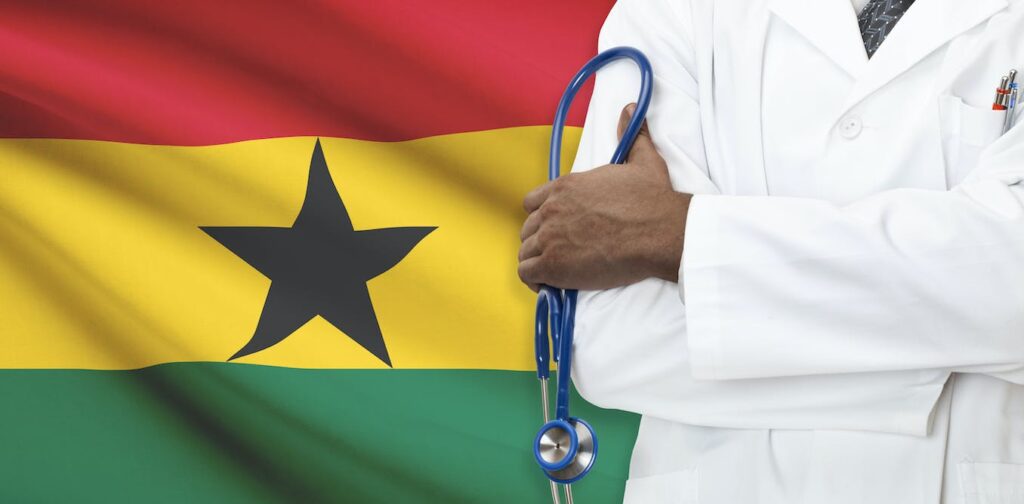Ghana’s national health insurance users often end up paying as much as those who don’t belong. So why join?

Health financing is a challenge any country has to deal with to provide good healthcare services. It’s especially important for developing countries such as Ghana, where ability to pay is a hindrance to accessing all the healthcare services that people might need.
The “cash and carry” system, where sick people have to pay out of pocket to obtain care, has obvious adverse implications. People who can’t pay won’t be attended to. This could lead to irreversible consequences – even death.
Health insurance has come up as a means to provide subscribers with at least basic healthcare even if they are unable to pay.
Ghana’s public health insurance programme, the National Health Insurance Scheme, was introduced in 2004. In principle it is mandatory, but in practice it is voluntary.
The active enrolment rate of the public health insurance scheme – the proportion of the population covered – rose to its highest in 2015, when it was 41%. At the end of 2018 it stood at 36%.
(The National Health Insurance Scheme estimated the enrolment rate at end of year 2021 at approximately 54%.)
Clearly, many people are not covered under the National Health Insurance Scheme. The low uptake is an impediment to achieving universal health coverage. But the question is why a social protection programme of this nature has relatively low coverage rates.
The scheme is designed to offer poor households exemptions from annual premium payments. Therefore, the ability to pay insurance premiums shouldn’t be a contributing factor to the low coverage rates.
Private health insurance programmes are not widespread in Ghana either. The Ghana Living Standards Survey 7 conducted by the Ghana Statistical Services in 2017 revealed that only 0.36% of the nearly 60,000 respondents had ever enrolled in a private health insurance programme.
One motivation for subscribing to the National Health Insurance Scheme would be if non-subscribers made higher out-of-pocket payments for healthcare than subscribers. If scheme members paid little or nothing and non-members paid more, then non-members might be motivated to enrol on the scheme.
But this is not often the case. The 2017 survey revealed that health insurance paid out only 16.7% of the medical expenses of the ill or injured across the country.
Contrary to expectation, our research found that Ghana’s national health insurance did not reduce out-of-pocket payments for those who had subscribed. Thus, the scheme may not be achieving its objective of eliminating the cash and carry system.
Why enrolment doesn’t pay
The National Health Insurance Scheme in Ghana has historically been bedevilled by several challenges in practice. Previous research has reported that it is not uncommon for health facilities to charge both formal and informal fees even to insured clients.
Health facilities prefer to attend to patients who pay for treatment in cash rather than those who rely on their national health insurance policy to pay. That’s because they must complete tedious paperwork and wait for a long time before the scheme reimburses them.
This forces patients wanting more timely and better quality of care to make these payments – overt or otherwise – sometimes completely forgoing the use of their national health insurance policies.
The medicines which the scheme covers run out quickly or are unavailable. So patients, insured or not, end up having to buy medicines themselves either from the health facility they visit or from private retail pharmacies.
Some positive news
There were some positive findings from our research, however. We found that very poor households were more likely to enrol in health insurance than other households. This is perhaps because they are exempt from paying insurance premiums.
This suggests that the national scheme is achieving one of its objectives: increasing access to healthcare for the poor.
Although the scheme does not lower health expenditures for members, it might enable them to receive a greater “quantity” of healthcare, since at least some of their health expenses are likely to be covered by insurance.
What should be done?
If provider facilities did not discriminate against patients on the basis of who was willing to make a cash payment, and enrolled members did not have to buy the medicines they needed, people would be confident in using their insurance policies and might spend less out of pocket.
That might rake in more scheme members, which would increase the financial base of the scheme to keep it running effectively.






